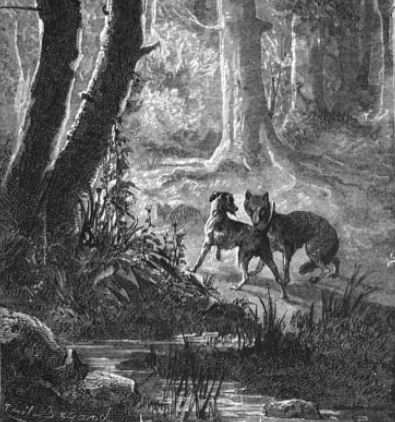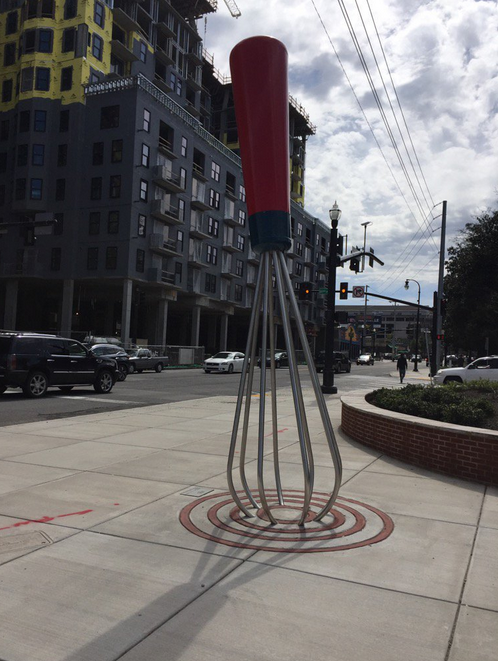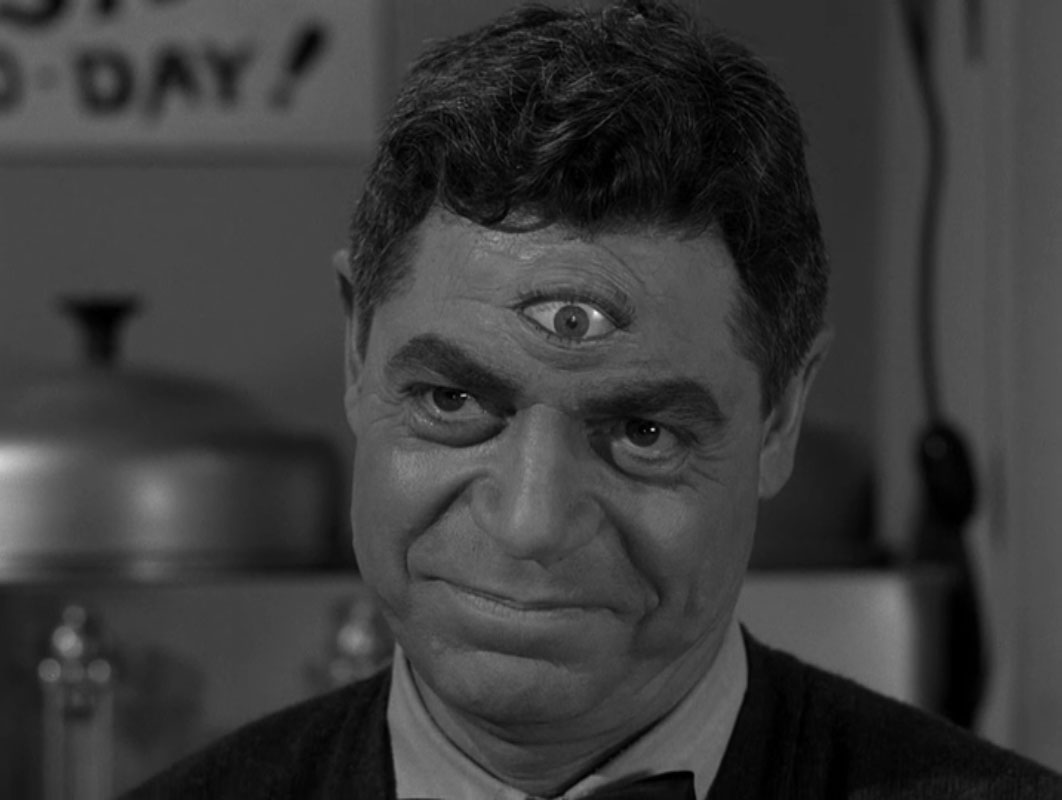 The following story was written by journalist Allen Walker and appeared in the October 2015 issue of Catchall, an alt-weekly for which he is a feature writer. It’s reprinted here with the author’s permission. His articles have also appeared in Matrix, Road Hogs, Elsewhere, and other publications.His essay Patagonia Dreamin’ is included in the anthology The Journey Of A Thousand Miles. Other stories by Allen Walker that have appeared here are Living Or Dead Is Purely Coincidental (Part 1, Part, 2, Part 3, Part 4), That Was The Year That Was, and Submerged.
The following story was written by journalist Allen Walker and appeared in the October 2015 issue of Catchall, an alt-weekly for which he is a feature writer. It’s reprinted here with the author’s permission. His articles have also appeared in Matrix, Road Hogs, Elsewhere, and other publications.His essay Patagonia Dreamin’ is included in the anthology The Journey Of A Thousand Miles. Other stories by Allen Walker that have appeared here are Living Or Dead Is Purely Coincidental (Part 1, Part, 2, Part 3, Part 4), That Was The Year That Was, and Submerged.
George Bathory reported during the night that he’d shot a large animal near his campsite. The next morning park rangers found a naked man with a bullet wound in his shoulder. The man, later identified as Sam Gould, refused to press charges. Neither of the men knew each other, nor did they have any connection that investigators could find.
Those are the facts and they are strange enough in themselves but to make it stranger Bathory maintains he did not shoot a man. The whole matter could have been easily dismissed as a hunting accident if he hadn’t insisted on going to court to protest his innocence. When I arrive at his home on a small suburban cul-de-sac he tells me almost immediately that he’s decided that an appeal would be too costly, but he insists, in spite of the court’s decision, that he is not guilty of involuntary manslaughter.
“It wasn’t a man,” he says. “I know what I saw. I might have shot to kill if I hadn’t been so scared.”
What exactly did he see, or think he saw? A clue to that is in the list of witnesses he wanted to call: mostly biologists, at least five of whom are in Canada or Alaska, but also folklorists and anthropologists. It’s hard to see how any of them could offer anything that would bolster his case.
“They have to know,” he says. “They have to know these aren’t just stories.”
While he goes to the bathroom I examine his bookshelves. He has a whole series of books titled Roughing It Easy and several more on camping and hunting. At the end of the shelf is a cluster of books about mushrooms. I flip through one that’s full of colorful photographs and diagrams clearly marking every species as delicious, inedible, or dangerous. He finds me looking at this book when I return and launches into a talk about mushroom hunting, how there are five types easily identifiable by anyone that are not only edible but very good.
“Were you collecting mushrooms when you were camping?” I ask. I hope the question doesn’t sound too obvious. Mr. Bathory, with his short hair and straightforward demeanor also doesn’t seem like the type to engage in recreational drugs of any sort, but I’ve learned you never can tell.
He shakes his head, waving the question away. “With the drought you’re not going to find any mushrooms out in the woods.”
His wife, a tall, slender woman with a halo of red hair and pale blue eyes, comes in to tell us lunch is ready.
Once we start eating I try to bring the conversation back to his conviction.
“You do understand why it sounds pretty ridiculous,” I say. “A large creature like that roaming around the woods here just seems too incredible to be true.”
“I know what I saw!” He slams his fist down on the table.
After a few minutes of silence I tell his wife the paprikash is delicious. The chicken floats in a sauce that looks like blood.

Even though I felt obligated to talk to Mr.Bathory he’s not the real reason I’m in Glasgow, a small town in southwestern Indiana. The real reason is a woman I’ll only call Alpha. A month earlier, after I’d written up a brief filler about the shooting, she emailed me to tell me she wanted to confirm his story. She also added that there was more to it.
We stroll along an easy path through a state park. As we get deeper into the woods she inhales deeply.
“I work in an office but this is where I really belong,” she says.
“How often do you come out here?”
“Every chance I get.”
An unseasonably cool breeze passes through us. I’m at a loss for what to ask next when I remember the moon was only a sliver in the sky over my hotel this morning. I ask if I should have come closer to a full moon. She looks at me, frowning.
“It’s not a lunar thing. It doesn’t work like that. Do you know where that comes from?”
“Tell me.”
“There’s all kinds of myths and stories about lunacy and the effects full moons have on people but the idea that we’re bound to the moon comes from Hollywood and Hollywood got it from Petronius. Except Petronius doesn’t say it’s a full moon. He just tells the story of two slaves who spend the night in a field. One of them sees the other strip down and transform. He can only see it because of the moonlight. The change really can happen anytime. It’s not something we become. It’s who we are.”
“Always?”
“All the time.”
We stop. Alpha looks around. “There are people here.” There were a few other cars in the parking lot when we arrived but I haven’t seen anyone. “They’re about fifteen, maybe twenty minutes ahead of us on the trail,” she says. “I shouldn’t be telling you about us.”
“Why did you contact me then?”
She sighs. “Because you seem open-minded. Because you were asking about the shooting and it has all of us on edge. These things have happened before but we’ve never had anyone make so much noise about it. It’s never been this public. It got some of us thinking maybe it’s time to come out. We have so much to lose but so much to gain too.”
“Like what?”
“For one thing we don’t know how it happens. My mother wasn’t like me. She would have told me. And I never knew my father. We don’t know if it’s genetic, but if it is we could make the world safer for our children.”
We continue walking. I ask if there’s any evidence that it’s passed on by a bite, like in some folklore.
“You’re thinking rabies. And porphyria. We think it’s more complicated than that, like it just crops up in people at random.
“But if you come out there might also be efforts to try and cure you,” I say. “There are stories about that too. Wolfsbane, silver bullets.”
Alpha turns and glares at me. “You think Sam got shot by some camper who just happened to be carrying a rifle with silver bullets? Don’t be a dumbass.”
When we reach the end of the trail Alpha shakes my hand.
“I need to get back to work. It has been nice talking to you. We’ll pick you up tonight at seven.”
I thank her politely but inside I’m elated. I’ve passed the test and will get to meet the pack.

The van pulls up at the front of my hotel a little after seven. The late summer sun is still high in the sky. It’s humid and I’ve been dousing myself with bug spray to keep the mosquitoes at bay. I open the back to toss in my gear. Then, as I’m climbing into the side, I come face to face with a man with a thick, long beard. He looks at me suspiciously then turns to the front where Alpha sits in the passenger seat.
“Is this a good idea?” he asks.
Alpha’s reply is blunt. “Yes.”
The other three passengers—two women and an African American man—are friendlier. They introduce themselves to me as Kathy, Linda, and Larry. Larry invites me to sit next to him. The bearded man will only tell me his name is Beta, and he spends the trip staring out the window. Once we get underway I ask if anyone minds answering a few questions. I try to address this to everyone in the group, but I’m intrigued by Larry. He grins widely and says, “What do you want to know?”
A hundred different things, but I start with the obvious.
“How did all of you meet?”
Kathy turns around. “It started with me and Alpha. We met when we were Girl Scouts. We were in different troops but using the same campsite. That’s how we met each other one night. Out roaming the woods alone. We’ve been friends ever since.”
“So you were…”
“Different,” she says. “But we both knew we needed each other. And we needed others.”
Linda interrupts. “The internet has been what’s brought us together but you have to be careful. Most people think we’re crazy. Some people want to join us and it turns out they’re crazy.”
“How can you tell?”
Linda’s nostrils flare. “You smell like a skeptic.”
“And bug spray!” yells Alpha from the front seat. “God, let’s crack some windows.”
Linda’s right, I am skeptical, but while I’ve tried to keep my questions neutral it’s not exactly a revelation. Even though stories of lycanthropes extend across the northern hemisphere and almost every culture has its stories of humans that turn into animals—including dolphins—the idea of meeting the real thing still seems incredible. Yet this group’s insistence that they are a “pack” seems strangely believable. As Alpha said there are many things they don’t know. If this were a hoax, I assume, they’d have built up an elaborate story. Taking a single reporter on a camping trip also seems like a poor way to stage a hoax. They’re too careful, too secretive. Kathy tells me they have to be.
“Sam got sloppy. He forgot that we don’t just go out with each other for fun. We also do it to protect each other. He forgot that some people will try to hurt us.”
I ask if she thinks I might.
“It’s hard to tell through the bug spray and deodorant and hotel soap but I don’t think so.”
The others, aside from Beta, agree.
I continue asking questions and learn that they do these camping trips at least twice a month from March through October, tapering off to just once a month in the winter months. There are a few other members who aren’t attending, apparently put off by me. The van’s driver is Karl whom I learn is not really a member of the pack but a trusted outsider who only serves as chauffeur and won’t be staying with us.
When we get to the parking lot of the place where we’ll be camping I offer to help carry gear which makes everyone laugh. This group travels light. I’m the only one with a pup tent and a sleeping bag. I also brought two thermoses of coffee, anticipating a late night, an early morning, or both. Everyone else has rolled blankets and small bags for carrying food, water, and cooking gear. We set out for the campsite. Larry brings up the rear and I walk with him. We chat and I learn during the day he’s a librarian, “mostly behind the scenes stuff.” Everyone else is quiet. Alpha and Beta lead the group and talk a little as we go. Kathy and Linda walk single file in the middle.
At the campsite everyone puts their bags down in a circle but Alpha advises me to set up my tent on a ridge about a hundred feet away “to be safe”. Safe for whom? I decide not to ask.
Once my tent is set up I rejoin the group. Everyone’s eating field rations, MREs, in self-heating packages.
“We used to build fires but it was too distracting,” says Alpha.
“From what?” I ask. Everyone looks at each other.
“They could attract others. Someone also had to stay up and make sure the fire was put out so nobody’d step in it or get scared away. This way we all get to relax and just be ourselves.”
Larry hands me an MRE. “And with you here,” he says, “I don’t get stuck with the vegetable lasagna.”
I’m not sure what the joke is but I laugh along with everyone else.
The sun sets. Someone places a small portable lamp in the middle of the group and soon the others are just five faces bobbing in the darkness. From their conversation they could be almost any group of hobbyists. Alpha complains about a difficult co-worker. The others’ advice is generic. Then they start to talk about previous camping trips, about the time in late March there was a light overnight snow. During a lull Linda pulls pulls out a flask. She hands it to Alpha who drinks then reaches across the circle to me. The others all watch.
“What is it?” I ask. I wonder if I’m being drawn into some ritual, if this is a plan to make me one of them. There are stories of potions and moonlight ceremonies. Some werewolves are born, others are made.
“Drink,” says Alpha.
I tip up the flask and take a mouthful. Warmth fills my mouth and then spreads through my chest and body.
“Whiskey?” I ask.
Scotch, Linda tells me. “It’s tradition but for you I brought the good stuff, the twelve-year old single malt.”
I feel honored. I pass the flask to Larry who shakes his head and motions to Beta who takes it and has a long pull. Cathy and Linda receive it next and then it goes back to Alpha who then hands it to me. This time after I drink I hand it to Beta, and it makes the same round again two more times before Cathy turns it over.
“Time for bed,” says Alpha.
I climb up to my tent. Behind me the lamp is turned off. As I crawl into my sleeping bag I hear murmurs. I feel like a kid who’s been sent to his room so the grownups can talk. I keep the tent flap open but they’re all in darkness now. The waxing moon is just visible through the trees on the horizon but doesn’t cast enough light. And then, somehow, I sleep.
For a moment I’m not sure where I am. The moon is directly overhead now. I hear rustling and can make out shadows moving. I flick on my flashlight and aim it at the clearing below. There are blankets spread out but I see no one. As I raise the light bright green eyes shine back at me. Against the stars I see the silhouettes of hunched figures. There’s a crackle of leaves then the scream of a rabbit.
I can’t move. I am unarmed and alone.
A long howl echoes from the hills around me.

Like this:
Like Loading...
 My wife is trying to keep me from turning to a life of crime.
My wife is trying to keep me from turning to a life of crime.
 The traditional Christmas tree is an evergreen because evergreens keep their foliage year round, hence the name, so they’re symbolic of life surviving through the winter, of renewal and hope at the very darkest and coldest point of the year.At least that’s the conventional wisdom, but at a certain point when I was a kid I started wondering if this was really the case. If it’s all about life and renewal why does the tree have to die? And let me add this was long before hip people started bringing live trees into their homes, decorating them, and then planting them outside once Christmas was over, pretty much guaranteeing that the tree, used to being in a nice warm house, watered regularly, and treated with great kindness, would die of shock.
The traditional Christmas tree is an evergreen because evergreens keep their foliage year round, hence the name, so they’re symbolic of life surviving through the winter, of renewal and hope at the very darkest and coldest point of the year.At least that’s the conventional wisdom, but at a certain point when I was a kid I started wondering if this was really the case. If it’s all about life and renewal why does the tree have to die? And let me add this was long before hip people started bringing live trees into their homes, decorating them, and then planting them outside once Christmas was over, pretty much guaranteeing that the tree, used to being in a nice warm house, watered regularly, and treated with great kindness, would die of shock.
 Detailed Package Tracking
Detailed Package Tracking









